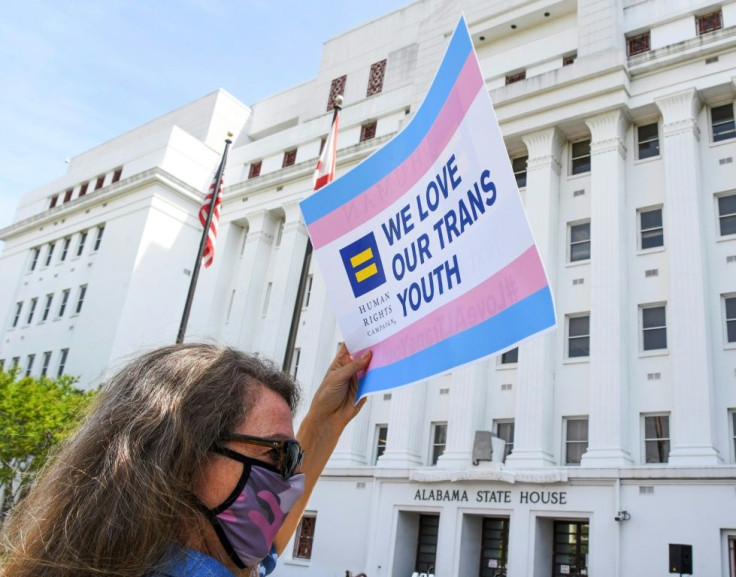In US, Conservatives On Offense Over Transgender Youths
On soccer fields, in locker rooms and even at the doctor's office, the rights of US transgender youths have become a political lightning rod, with dozens of recent bills attempting to dictate their fate in conservative states.
"It's devastating to think that someone that doesn't know me is telling me how to live my life," said Dylan Brandt, a 15-year-old from Arkansas, who began testosterone treatment eight months ago.
The result was an instantaneous "boost in my happiness, in my confidence," said the blond-haired, blue-eyed boy, who recently celebrated the changes, most notably his deepened voice, in a TikTok video.
He may soon lose access to hormone therapy, however, after Arkansas -- southern, mostly rural and located squarely in the Bible Belt -- became the first US state to deny minors access to medical transitions in a bill passed this week.

One of the bill's sponsors described such treatments as "at best experimental and at worst a serious threat to a child's welfare."
Brandt, who decided at age 13 to make the transition, has already gone through a year and a half of appointments with psychologists and doctors, after spending the majority of his life "trying to act as girly as possible."
"I wasn't happy with myself," he said.

Dylan's mother, Joanna Brandt, believes the restrictions are less about the well-being of children and more about politics.
"It's hard to think in a conservative state that politics don't have something to do with it," she said.
Jordan Ruud, president of River Valley Equality Center, an LGBT advocacy group in Arkansas, said that for a long time "attacking gays and lesbians basically was a successful wedge issue for some politicians."
With the legalization of gay marriage, however, those attacks became "less socially acceptable" and politicians shifted their focus to the transgender community, he said.

Arkansas Governor Asa Hutchinson, himself a Republican, unsuccessfully tried to veto the bill, warning state lawmakers they did not have to try to interfere with "every aspect of the cultural wars."
"My own personal view that this is too extreme, it was too broad and did not grandfather in those young people who are currently under hormone treatment," Hutchinson told National Public Radio.
The bill restricts surgeries, hormones and puberty blockers related to transitioning for anyone under 18.
Apart from medicine, the sports field has become another battlefield: conservatives in more than 20 states have banned transgender children and adolescents from competing in women's events, reasoning that taller, stronger and faster athletes who have transitioned have a competitive advantage against other females.
"What coach, as an example, wants to recruit a young woman if her record can easily be broken by somebody who was born a man?" former president Donald Trump asked in February during his first speech since leaving office.
Not so fast, says Eric Vilain, a pediatrician and geneticist in Washington who has advised the International Olympic Committee on sex differences.
"At the elite level -- the world championships, the Olympic competitions -- transgender female athletes do not win more," he said.
"There are so many factors that go into forming an athlete," he said. "A transgender athlete who goes into basketball will be taller on average so that could be an advantage, but in gymnastics she would be too tall."
US President Joe Biden took a stand on the issue of gender identity during his first day in office, with an executive order "preventing and combating discrimination on the basis of gender identity or sexual orientation."
Activists, and even sports stars such as US women's soccer great Megan Rapinoe, say that preventing transgender athletes from participating in sporting events or interfering in their medical treatment is both discriminatory and harmful.
"These kids are just good and brave kids that just want to be left alone," said Brandt.
© Copyright AFP {{Year}}. All rights reserved.





















